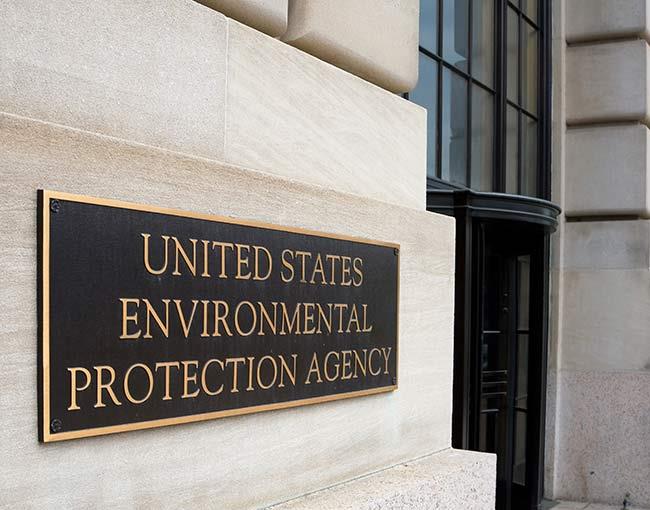Home > Insights > Publications > Environmental deregulation under President Trump: Business as usual?
The Trump Administration is expected to issue a high-profile executive order that seeks to eliminate a major Obama-era environmental measure, the Clean Power Plan. But will this and any future deregulation rhetoric come to fruition in time to affect the private sector?
Yes and no, says Scott Fulton, the president of the Environmental Law Institute (ELI). The Clean Power Plan and other environmental regulations certainly have targets on their backs, but the process for dismantling those regulations is itself so time-consuming and complex that President Trump may be on the doorstep of reelection before the dust settles on any significant changes.
“Deregulation requires rulemaking,” Fulton said. “As you hear about rules being taken down, it’s important to view that process as a progression. These things will not happen overnight.”
That’s one of the observations Fulton imparted during a March 8 presentation to the EHS Leaders’ Network, a group of leading environmental, health and safety professionals from companies and institutions from across the Midwest. The Network met at Thompson Coburn’s St. Louis office. Fulton, the former general counsel for the EPA, now leads ELI, a non-partisan, non-advocacy group that provides in-depth research and analysis on a full range of environmental policy issues.
Still, even if little progress is made rolling back environmental regulations, private companies should closely monitor the situation in Washington over the next four years, Fulton said. “Uncle Sam is trying to take his foot off the accelerator when it comes to regulation. What will be happening in the private sector in the face of that?”
Specific deregulation target: The Clean Power Plan
The Trump Administration has in its sights the Clean Power Plan, a controversial measure issued in 2015 that sought to regulate emissions from greenhouse gases from fossil fuel-fired power plants.
The CPP is embroiled in litigation and is currently stayed, which considerably complicates any executive branch efforts to roll back the regulation. “President Trump is expected to issue an executive order directing the Department of Justice to stop defending the CPP in court. But it remains to be seen whether that’s a viable option,” Fulton said.
“The EPA administration could petition the D.C. Circuit to remand the rule back to the EPA for reworking,” Fulton said. “It’s not certain the D.C. Circuit would acquiesce to that request. We’ll see what the response of the courts will be. They could remand the case with instructions or find that the CPP is in accordance with the Clean Air Act. Either result could limit the discretion of the Trump Administration going forward.” Regardless, the regulatory focus of the Trump Administration will likely inform the shape of the case before the D.C. Circuit on the CPP.
Energy efficiency rules
Also on the list of Trump Administration environmental priorities may be the rollback of energy efficiency rules.
“There’s a handful of these energy efficiency rules frozen in place, waiting for the Trump Administration to take a look,” said Fulton. Yet the new Secretary of Energy, Rick Perry, has an interesting history with such measures. As governor, he signed into law utility energy efficiency rules to address persistent drought.
“Perry doesn’t seem to be the enemy of these kind of rules, and they’ve appeared as part of a Republican agenda in the past,” Fulton said.
Threat of agency budget compression
Reports of significant cuts to the EPA’s budget made headlines earlier this month, with possible budget cuts in the range of 24 percent discussed, along with the possible consolidation of EPA regional offices. Fulton anticipated the actual budget cuts would not be as dramatic as those figures. He pointed out that compression of the agency began during the Obama Administration; since 2010 the EPA’s budget has decreased by $2 billion and the workforce reduced by some 2,000 employees.
Still, if budget cuts do materialize and the EPA has trouble managing its day-to-day workload, Fulton projected that the private sector could feel the effect in the form of increased delays on licenses and permits.
The focus on deregulation, the fate of the CPP and energy efficiency rules, and the size of the EPA’s budget are matters to which EHS personnel and environmental counsel should pay careful attention in the upcoming months. Professionals in these areas can be certain that change is coming, but the scope and speed of that change is yet to be determined.
If you have questions regarding this article or the status of any of these regulatory agenda items, please contact Ryan Russell Kemper or Paul Sonderegger in Thompson Coburn’s environmental practice area.

